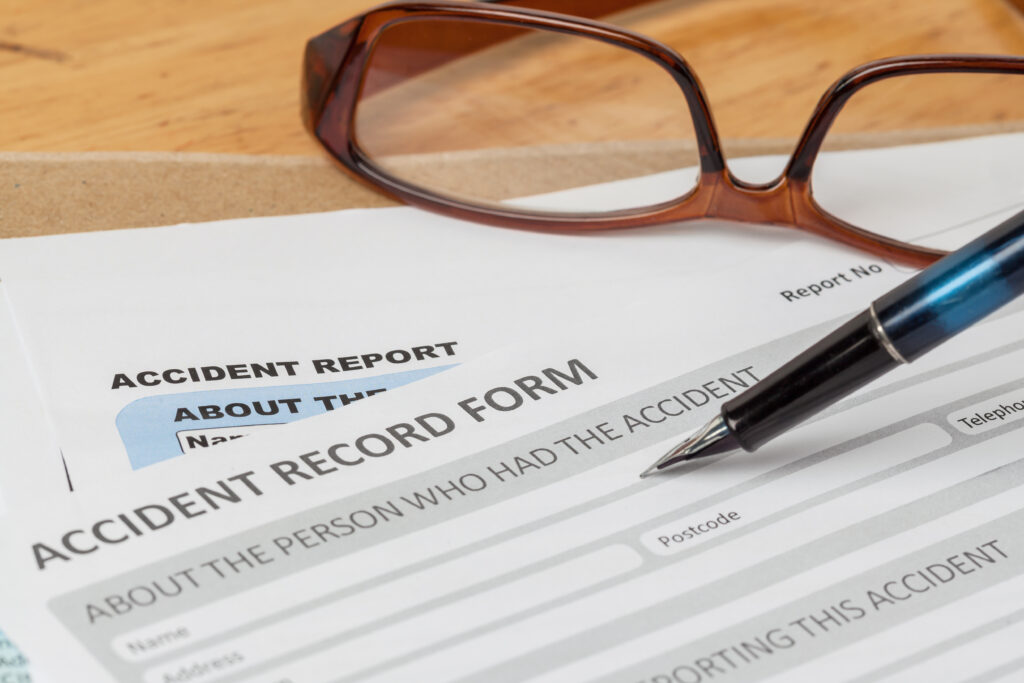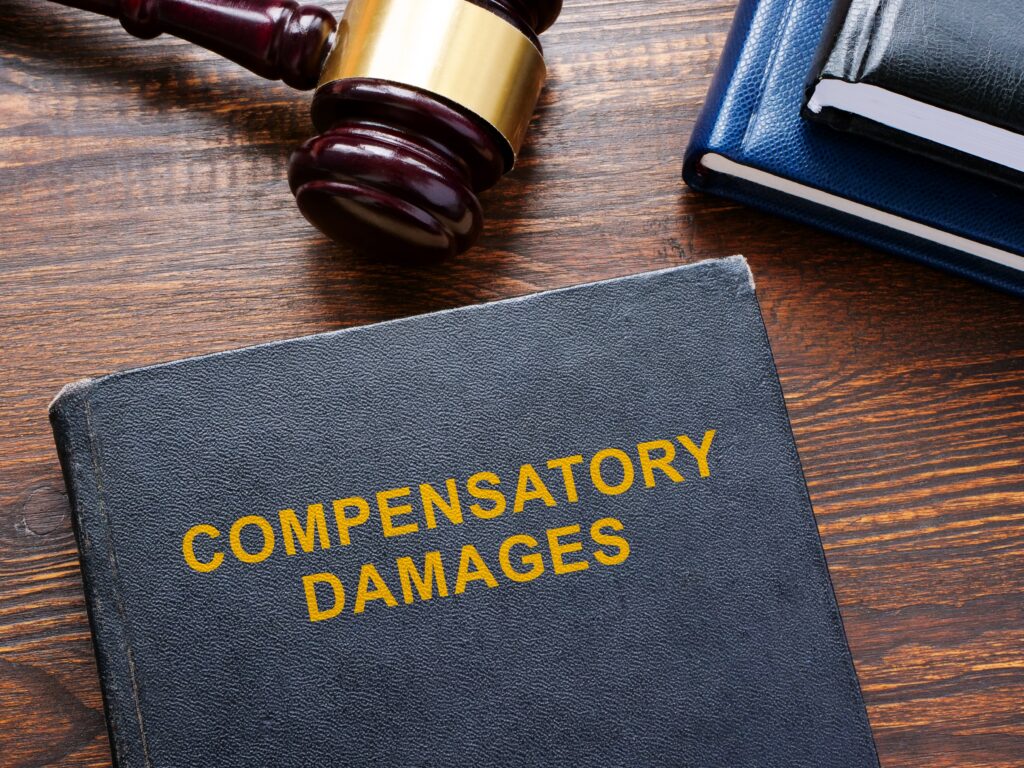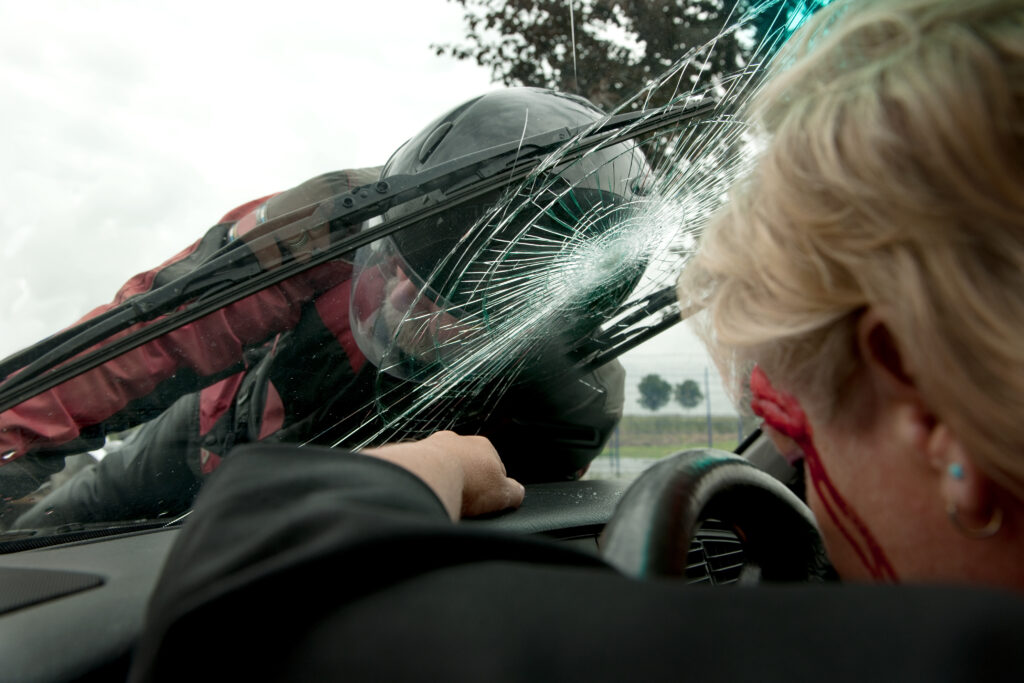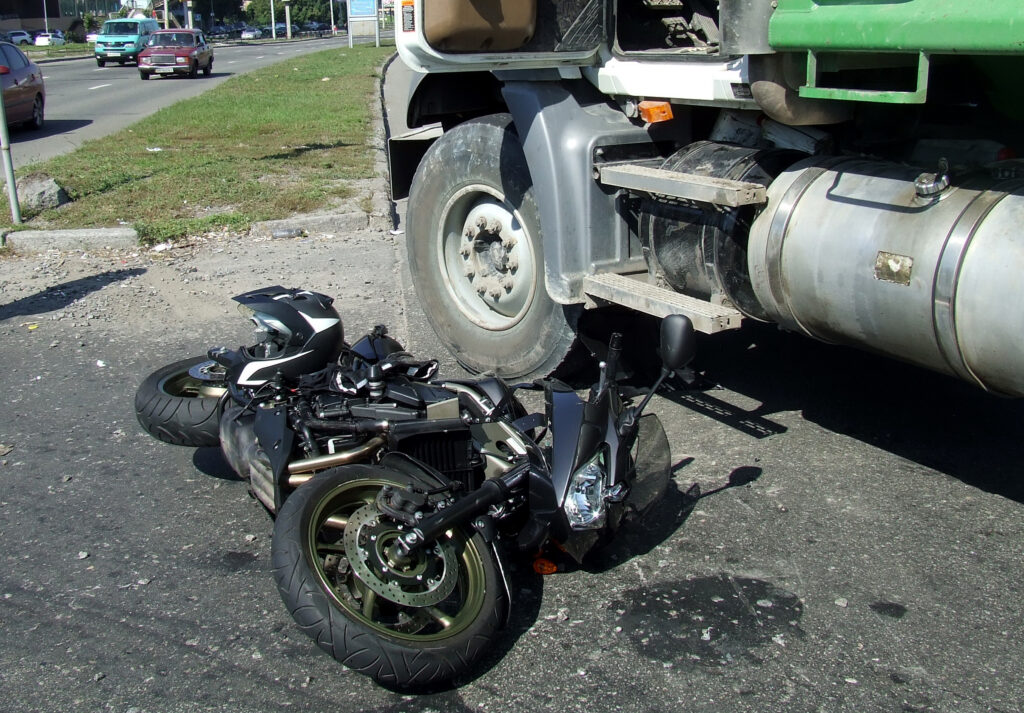Motorcycle accidents can leave riders facing physical injuries, emotional trauma, and financial burdens. After such an event, it's natural to feel uncertain about the steps to take next. That's where an Omaha motorcycle accident lawyer comes in.
Here's how a motorcycle accident lawyer can assist you:
Helping You Understanding Your Rights

After experiencing a motorcycle accident, you need to hire a lawyer with a firm grasp of your rights. It's the foundational step towards ensuring fair treatment and making well-informed decisions regarding your path forward.
The Right to Compensation
As an accident victim, you have the ability to seek compensation for your losses. This encompasses not only immediate medical expenses but also the costs of long-term care, lost wages if your ability to work is compromised, expenses for repairing or replacing your motorcycle, and compensation for psychological distress. A lawyer can clarify these aspects for you.
The Right to Legal Representation
You have the unequivocal right to legal representation. This means you can seek representation from a seasoned motorcycle accident lawyer to advocate for you. A lawyer offers skilled representation and a compassionate understanding of your circumstances.
The Right to Not Admit Fault
Refrain from admitting fault to insurance companies or at the accident scene. Statements made post-accident can significantly influence your case's outcome. A lawyer can advise you on effective communication strategies that do not jeopardize your position, handling all communications to safeguard your rights.
The Right to a Fair Investigation
You are entitled to a thorough and impartial investigation of your accident. Such an investigation should gather all pertinent facts, including statements from witnesses, footage from traffic cameras, and any other evidence that elucidates the event. A lawyer spearheads this investigation, using resources like expert witnesses to develop a strong understanding of the incident.
The Right to Privacy
Your privacy rights include the confidentiality of your medical records and case details. A lawyer ensures the protection of your personal information throughout the legal process, disclosing details only as necessary and with your explicit consent.
The Right to Reject Quick Settlement Offers
Insurance entities often propose quick settlements that may fall short of what you're rightfully entitled to. You have the right to decline such offers. A lawyer knows whether an offer is equitable and advises on whether to negotiate for a better settlement or proceed to court.
Investigating Your Case & Building a Strong Claim
A meticulous investigation into your motorcycle accident is an important step in building a strong case that supports your claim. This process involves gathering a comprehensive understanding of the events leading up to, during, and following the accident.
Gathering and Reviewing Police Reports

The investigation typically begins with obtaining and reviewing police reports. These reports often contain vital information about the accident, including the officer's observations, statements from involved parties, and, potentially, an initial determination of fault.
A lawyer can analyze these reports to identify any discrepancies or key pieces of evidence that support your version of events.
Analyzing the Accident Scene
A detailed analysis of the accident scene can provide valuable insights into how and why the accident occurred. This might involve visiting the scene to take photographs, measure distances, and note any relevant road conditions or signage.
A lawyer might also use accident reconstruction experts, who can use this data to recreate the events leading up to the accident, offering a clearer picture of the responsible party.
Speaking with Witnesses
Witnesses can offer different perspectives on the accident, providing details that might not be apparent from the physical evidence alone. A lawyer will identify and interview these witnesses, gathering statements that can corroborate your account of the incident and build a comprehensive narrative supported by firsthand accounts, strengthening the overall claim.
Reviewing Medical Records
Your medical records are a key component of your case, documenting the injuries you sustained and the treatments you've undergone. A lawyer will review these records to establish a clear link between the accident and your injuries, which is crucial for substantiating your claim for damages.
Collecting and Preserving Evidence

Throughout the investigation, collecting and preserving all forms of evidence is key. This includes physical evidence from the accident scene, photographic and video evidence, and all documentation related to the incident.
A lawyer ensures that this evidence is compiled and maintained, ready to be presented in negotiations with insurance companies or in court if necessary.
Handling Insurance Companies & Negotiating for a Fair Settlement
Dealing with insurance companies after a motorcycle accident can be a difficult process where the stakes are high, and the playing field often seems tilted in favor of the insurers. Here's a closer look at how a lawyer can manage these interactions on your behalf, aiming for the fairest possible outcome.
Understanding Insurance Policies
The first step in effectively handling insurance companies is thoroughly understanding both your insurance policy and the at-fault party's policy. Insurance policies are contracts filled with complex language and clauses that can significantly impact your claim.
A lawyer can decipher these documents for you, identifying key provisions that affect your ability to recover damages and ensuring that any claim filed is in strict accordance with these terms.
Communicating with Insurance Adjusters
Insurance adjusters assess the extent of damages and determine the amount of compensation. However, their goals can often seem at odds with yours—they're tasked with minimizing payouts for their employer.
A lawyer acts as your advocate, communicating with adjusters to present your case in the strongest possible light. This includes providing a detailed account of the accident, substantiating your claim with evidence, and arguing for a settlement that fully compensates you for your losses.
Negotiating Settlements
Negotiating with insurance companies is both an art and a science, requiring a deep understanding of legal principles, a firm grasp of the facts of your case, and the ability to persuasively argue your position.
A lawyer leverages their experience and skills to negotiate on your behalf, aiming to secure a settlement that covers your medical expenses, lost wages, pain and suffering, and any other applicable damages. This process often involves several rounds of negotiation, with a lawyer tirelessly advocating for your best interests at each step.
Challenging Denied Claims

In some cases, insurance companies may deny your claim or offer a settlement that is woefully inadequate. A lawyer is prepared to challenge these decisions, utilizing a comprehensive understanding of insurance law and the specifics of your case to contest the insurer's position.
This might involve filing appeals with the insurance company, presenting additional evidence, or even taking legal action to ensure you receive the compensation you deserve.
Providing Peace of Mind
Perhaps one of the most significant benefits of having a lawyer handle insurance companies is the peace of mind it provides. Knowing that an experienced professional is advocating on your behalf can alleviate the stress and anxiety associated with these negotiations.
A lawyer takes on the burden of dealing with insurers, allowing you to focus on your recovery and rehabilitation.
Securing Compensation: Maximizing Your Financial Recovery
Securing compensation after a motorcycle accident is about more than just addressing immediate financial concerns; it's about ensuring that you have the necessary resources for a full recovery and rehabilitation. The process involves navigating a complex landscape of legal claims and negotiations, where the goal is to cover all your losses, both tangible and intangible.
Comprehensive Evaluation of Damages
The first step in securing compensation is a thorough evaluation of the damages you've incurred. This encompasses not only the obvious costs like medical bills and repairs to your motorcycle but also less tangible losses such as lost wages, diminished earning capacity, and emotional distress.
A lawyer can help quantify these damages, including future expenses you may incur due to ongoing treatment or lasting injuries. This comprehensive approach ensures that every aspect of your loss is accounted for in your claim.
Medical Expenses
Medical expenses can quickly accumulate, from emergency room visits and hospital stays to surgeries, medications, and physical therapy. A lawyer works to ensure that your compensation covers these costs, both past and future. This may involve consulting medical professionals to understand the extent of your injuries and the expected trajectory of your recovery, providing a solid basis for claiming these expenses.
Lost Wages and Earning Capacity

If your injuries have forced you to take time away from work, you may be entitled to compensation for lost wages. Furthermore, if the accident compromises your ability to earn a living, whether temporarily or permanently, you can also seek damages for lost earning capacity.
A lawyer can assess the impact of your injuries on your career, factoring in your age, occupation, skills, and the nature of your injuries to calculate these losses accurately.
Property Damage
Compensation for property damage includes the costs to repair or replace your motorcycle and any other personal property damaged in the accident. A lawyer can help you document these losses and negotiate with insurance companies to ensure you receive fair compensation for property damage.
Pain and Suffering
Pain and suffering compensation acknowledges the physical pain and emotional trauma you've endured as a result of the accident. A lawyer can use their experience to argue for a compensation amount that reflects the severity of your suffering and the impact it has had on your life.
Representing You in Court: Advocating for Your Rights
While the goal is often to settle motorcycle accident cases without the need for a trial, there are times when taking your case to court becomes the best or only option to secure the justice and compensation you deserve.
When negotiations with insurance companies stall, or offers fail to meet the fair value of your claim, a trial provides an alternative path to resolution.
Here's an in-depth look at what it means to have a lawyer represent you in court and how this process works to advocate for your rights.
Preparing for Trial
Trial preparation is a process that begins long before stepping into the courtroom. Your lawyer will undertake a comprehensive review of all the evidence, including accident reports, medical records, expert testimony, and witness statements. This phase also involves formulating a compelling legal strategy tailored to the specifics of your case.
The goal is to build a strong narrative that clearly demonstrates the other party's liability and the extent of your damages.
Filing Court Documents
Your lawyer will manage all aspects of the court filings, from the initial complaint that starts your case to motions that your lawyer might file to argue various points of law. Your lawyer will craft each document to advance your case, presenting your claim accurately and persuasively within the legal framework.
Discovery Process
The discovery phase allows both sides to gather information from each other. This can include depositions, where witnesses and involved parties are interviewed under oath, and requests for documents that are pertinent to the case.
Your lawyer will lead these efforts, seeking to uncover evidence that strengthens your position while also scrutinizing the opposition's case for weaknesses.

Trial Advocacy
When your case goes to trial, having a lawyer with trial experience becomes valuable. Your lawyer will present opening statements, examine and cross-examine witnesses, introduce evidence, and make closing arguments.
Throughout this process, your lawyer's role is to advocate on your behalf, making a clear and persuasive case to the judge or jury about why you deserve compensation for your injuries and losses.
Contact a Motorcycle Accident Lawyer Today
You don't have to face a motorcycle accident alone. A motorcycle accident lawyer can provide the experience, support, and guidance you need to handle this difficult period.
Reach out to a motorcycle accident lawyer today for your free case consultation and start seeking compensation for your damages.